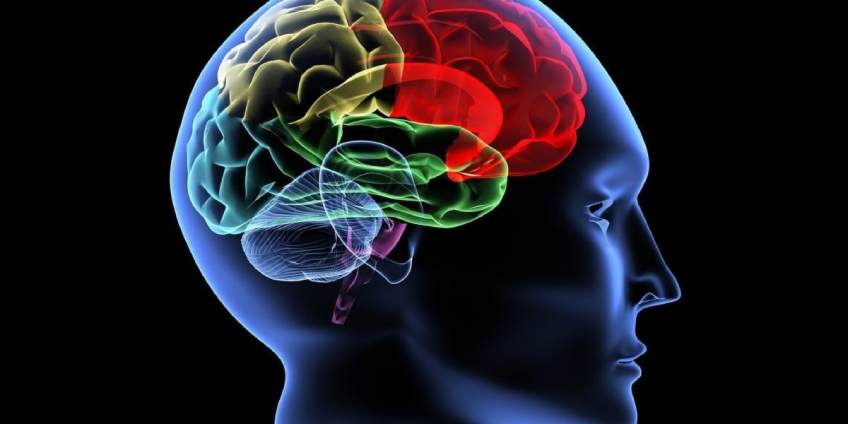Neurotrauma treatment near me: everything you need to know
Many people in Guntur suffer from neurotrauma. They visit their neurology hospital in Guntur for treatment. Do you have neurotrauma as well? In this article, we will discuss neurotrauma, how it is diagnosed and its treatments.
Let us begin by understanding what neurotrauma is.
What is neurotrauma?
Neurotrauma is an injury to the nerves, head, or spine that occurs suddenly. Concussions, traumatic brain injury (TBI), spinal column fractures, skull fractures, and spinal cord injuries are common injuries (SCI).
Most hospitals have a team of neurosurgeons who are specially qualified and prepared to detect and manage all types of neurotrauma. Let us now look at the various types of neurotrauma.
• Damage to the head

Head injuries can range from a minor bump on the head to significant brain trauma. A blow to the head or skull sometimes causes it. That can even happen if you crash or experience a rapid deceleration and acceleration.
Your brain cells can become unstable as a result of a head injury. The severity of your injuries and how long it will last is determined by how badly you get injured.
The type of brain trauma you might get include:
- Concussion
- TBI (mild)
- TBI of moderate severity
- The fracturing of the depressed skull
- Damage to the craniofacial area
- Hematoma in the epidural space
- Subdural hematoma (acute)
- Subdural hematoma, both acute and chronic
- Subarachnoid haemorrhage as a result of a traumatic brain injury
- A slip, crash, or car accident can also cause an injury to the spinal column (thoracic, cervical, or lumbosacral spine) or spinal cord.
- Traumatic brain injury (TBI) with severe consequences (typically involves a coma)
- A piercing brain injury
- Intracerebral haemorrhage/brain contusion as a result of a traumatic injury
- A traumatic leak of cerebrospinal fluid
- Pseudoaneurysm caused by a traumatic event
- Cerebrovascular damage that isn’t serious
- Injury to the spine
The types of spine trauma you might get include:
There are many types of spine damage, each of varying degrees of severity, just like head injuries. You can either be paralyzed or frail as a result of what happened—the type of spine trauma you might get includes.
- Damage to the spinal cord
- Damage to the craniocervical spine
- Fracture to the cervical spine
- Damage to the thoracic spine
- Anterior wedge (compression) fracture
- Crack with a burst
- The possibility of a fracture
- Dislocation-fracture
- Pars defect due to trauma (spondylolysis)
- Spondylolisthesis due to trauma
- Damage to the lumbosacral spine
- Dissociation of the atlanto-occipital lobe
- Jefferson fracture (C1)
- Hangman’s crack (C2)
- Injury due to hyperflexion
- Damage caused by hyperextension
- Fracture of the odontoid (dens)
- TCS (trauma to the central nervous system)
- Facets that are perched/jumping
- Herniation of the intervertebral disc as a result of a traumatic injury.
- A sacropelvic fracture that is complicated
- Damage caused by compression
- Injury due to distraction
- Damage to the ligaments of the spine
How is neurotrauma diagnosed?
Neurotrauma may occur on its own or in conjunction with other injuries to the body. Many people who have suffered a severe spine or brain injury go to the emergency room (ER) and do not need an appointment.
When you arrive in the emergency room, the doctor immediately assesses you for a spinal or brain injury. A brain scan allows us to get a clear picture of the injuries. In general, doctors use a computed tomography (CAT or CT) scan of the spine or brain or use magnetic resonance imaging instead (MRI).
Treatments for neurotrauma
Most doctors handle spinal and head trauma depending on the type of injury and its severity. Mild accidents can only necessitate close monitoring. Severe trauma can require surgery. Particularly if the injury is not severe, some types of injuries necessitate surgery.
Neuropsychological therapy, physical therapy, speech therapy, occupational therapy, and recovery drugs are also available, depending on the needs.
Surgical treatments for neurotrauma injuries include:
- Location of an external ventricular drain
- Control of intracranial pressure
- Multimodal intracranial control
- The location of the lumbar drain
- Placement of a bedside subdural evacuating port device
- Decompression of the spine
- Spinal stabilisation with instruments
- Spinal instrumentation that is as minimally invasive as possible
- Fusion of the spine
- Subacute/chronic subdural hematoma burrhole
- A craniotomy is performed to remove the hematoma
- Craniectomy with decompression
- Cryosurgery
- Unstable skull fracture
- The frontal sinus is cranialized
- Complex craniofacial reconstruction
- Repairing a traumatic spill of cerebral spinal fluid
- For spinal injuries, external bracing is used
- Stabilization of the halo
- With a spinal fracture, closed reduction/traction is used
- Spine fracture open reduction/treatment
- Instrumentation and fusion of the sacropelvic spine
- Vertebroplasty/Kyphoplasty
Many people who have suffered minor spinal injuries to the back or head recover entirely. And after a minor injury, such as a migraine, you can experience symptoms that do not go away. We will continue to collaborate with you if anything happens.
How do find the best hospital for treatment?
Brain and spinal cord disorders necessitate round-the-clock supervision and rehabilitation. Look for a hospital with a dedicated neuroscience intensive care unit (ICU) for such injuries. Furthermore, look for hospitals that provide the following options:
• Specialized staff:
Look for doctors who work with neurologically injured ICU patients. Through a team of respiratory therapists, nurses, and other doctors, ensure that you get the best possible treatment.
• Cutting-edge technologies:
The medical team must use advanced equipment to monitor oxygen levels in your heart and brain, respiratory rate, and other vital functions. This allows our doctors to constantly monitor your health and make the right care choices for you.
• Family support:
Admitting a loved one to the ICU can be a shock. Your treatment staff should keep you updated and offer social support and services to you and your families.
Look for hospitals that offer comprehensive treatment for the most severe conditions, including prevention, healing, and recovery.
Why Choose Dr. Rao and Dr. Rao’s Hospital for Neurotrauma: Brain and Spine Trauma Care
When it comes to neurotrauma, which includes brain and spine injuries, timely and expert medical intervention is crucial. Dr. Rao and Dr. Rao’s Hospital are the premier choices for neurotrauma care in Guntur, offering unmatched expertise, state-of-the-art technology, and compassionate patient care. Here’s why:
1. Expertise and Experience in Neurotrauma
Dr. Rao:
- Highly Qualified Specialist: Dr. Rao is a renowned neurosurgeon with extensive training and experience in treating brain and spine trauma.
- Proven Track Record: With years of experience handling complex neurotrauma cases, Dr. Rao has successfully treated numerous patients, ensuring their best possible recovery.
2. Comprehensive Neurotrauma Care
Broad Range of Services:
- Emergency Response: Dr. Rao’s Hospital is equipped to handle neurotrauma emergencies, providing rapid response and immediate care to minimize damage and enhance recovery.
- Advanced Surgical Interventions: From decompressive craniectomy to spinal stabilization, Dr. Rao performs advanced surgical procedures tailored to each patient’s specific needs.
- Non-Surgical Management: The hospital also offers comprehensive non-surgical treatments, including medication management, physical therapy, and rehabilitation services.
3. State-of-the-Art Technology
Cutting-Edge Equipment:
- Advanced Imaging: The hospital is equipped with high-resolution MRI and CT scanners, ensuring precise diagnosis and effective treatment planning.
- Modern Operating Rooms: Featuring the latest surgical instruments and technology, the operating rooms at Dr. Rao’s Hospital support complex neurotrauma surgeries with high precision and safety.
4. Multidisciplinary Team Approach
Collaborative Care:
- Specialist Team: Dr. Rao works with a multidisciplinary team of specialists, including neurologists, orthopedic surgeons, radiologists, and rehabilitation therapists, to provide comprehensive care.
- Holistic Treatment Plans: The team collaborates to create personalized treatment plans that address all aspects of the patient’s condition and recovery.
5. Focus on Rehabilitation and Recovery
Post-Trauma Care:
- Rehabilitation Programs: Dr. Rao’s Hospital offers specialized rehabilitation programs designed to aid in the recovery of neurotrauma patients, focusing on restoring function and improving quality of life.
- Continuous Monitoring: Patients receive continuous monitoring and follow-up care to track progress and make necessary adjustments to their treatment plans.
6. Patient-Centered Approach
Compassionate Care:
- Personalized Attention: Dr. Rao and his team are committed to providing personalized care, ensuring that each patient’s unique needs and concerns are addressed.
- Family Involvement: The hospital encourages family involvement in the care process, providing education and support to help them assist in the patient’s recovery journey.
7. Accessibility and Convenience
Convenient Location:
- Strategic Location: Located in the heart of Guntur, Dr. Rao’s Hospital is easily accessible, ensuring prompt care for neurotrauma patients.
- Efficient Services: The hospital is known for its streamlined processes, ensuring minimal wait times and efficient handling of appointments and procedures.
8. Positive Patient Outcomes
Successful Recoveries:
- High Satisfaction Rates: Many patients have reported significant improvements and successful recoveries following their treatments at Dr. Rao’s Hospital.
- Trusted and Reliable Care: Dr. Rao’s dedication to excellence has earned the trust and confidence of his patients and the community.
In Summary
Choosing Dr. Rao and Dr. Rao’s Hospital for neurotrauma care means opting for a highly skilled specialist, advanced technology, comprehensive care, and a patient-centered approach. Whether dealing with brain or spine trauma, you can trust Dr. Rao to provide the highest standard of care, ensuring the best possible outcomes for you or your loved ones.
Contact Information:
- Phone: 9010056444, 9010057444
- Email: info@drraoshospitals.com
- Address: Old Bank St, GV Thota, besides AK Biryani Point, Guntur, Andhra Pradesh 522001
- Website: Dr. Rao’s Hospital
Take the first step towards recovery with Dr. Rao and Dr. Rao’s Hospital. Your well-being is our top priority.


